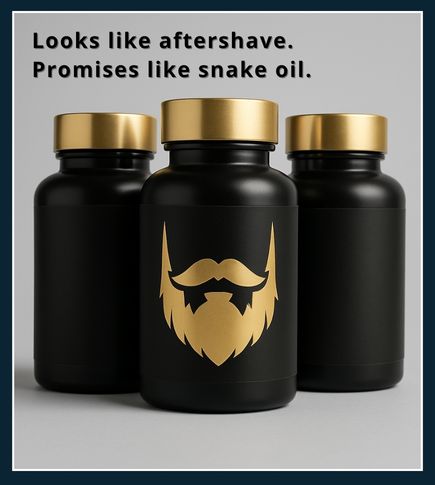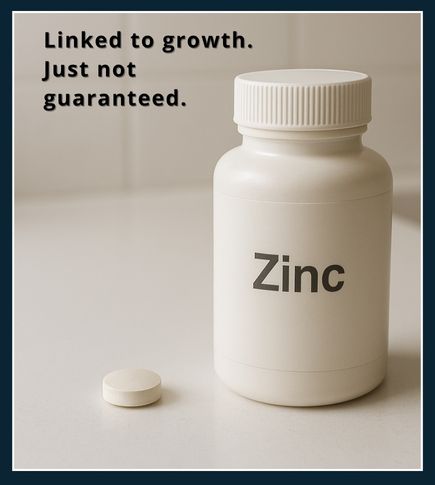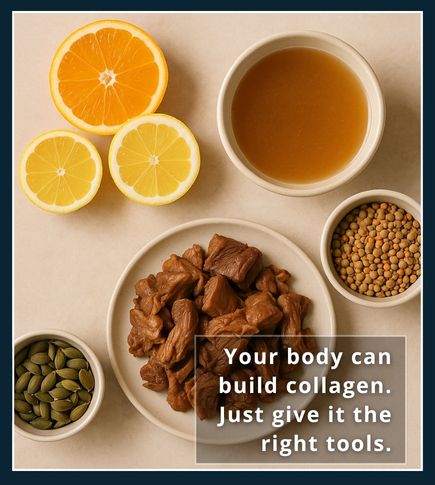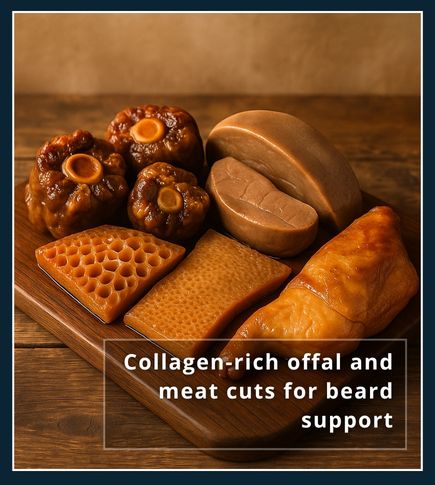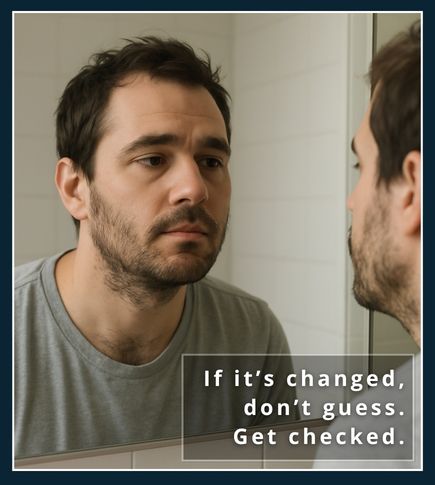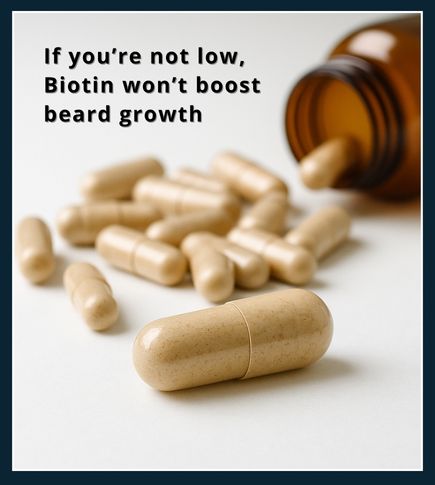
What Biotin Can and Can’t Do For Your Beard
If your biotin levels are already where they should be, taking more biotin doesn’t make any difference.
The research backs this up - biotin supplements only improves beard results when there’s a proper biotin deficiency to begin with.
So unless you’ve been eating like a teenager on a long-haul flight for the past few months, low biotin probably isn’t your beard-growth problem.
The research backs this up - biotin supplements only improves beard results when there’s a proper biotin deficiency to begin with.
So unless you’ve been eating like a teenager on a long-haul flight for the past few months, low biotin probably isn’t your beard-growth problem.

